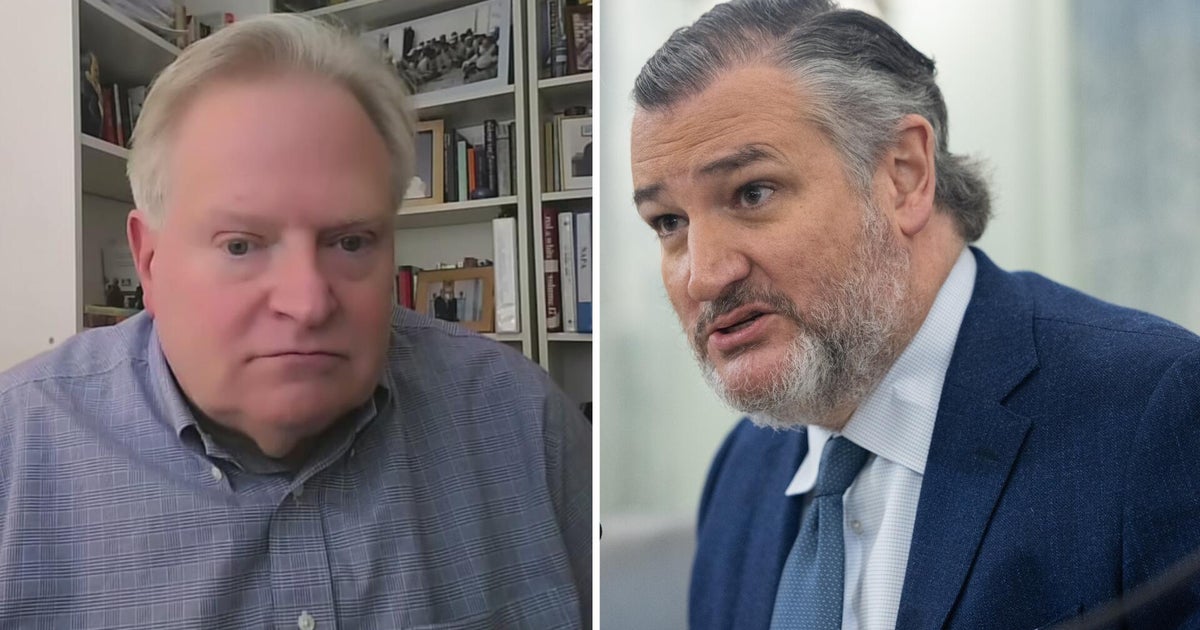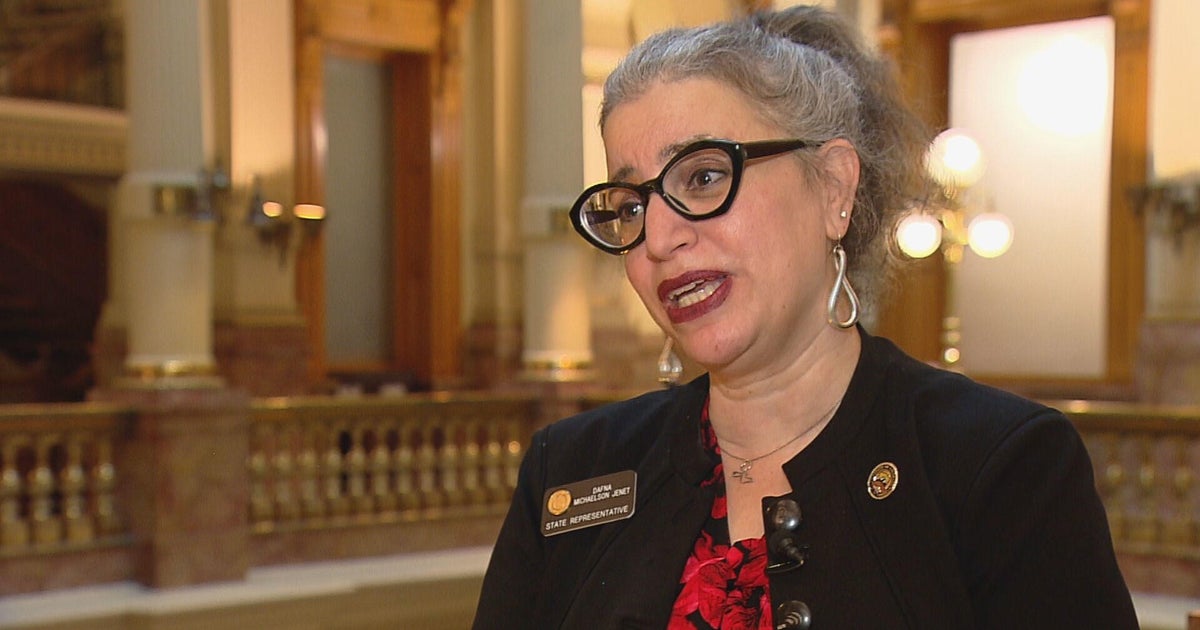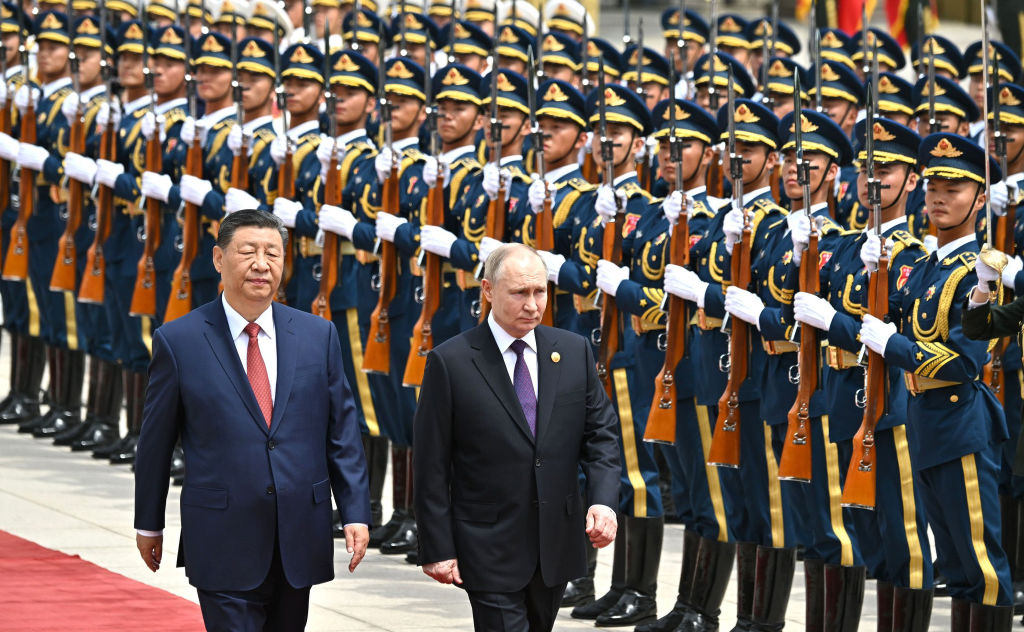Transcript: Sen. Marco Rubio on "Face the Nation," May 27, 2018
The summit between President Trump and North Korean leader Kim Jong Un might be back on, with Mr. Trump telling reporters Saturday night that meetings to revive the scrapped summit are ongoing. South Korean President Moon Jae-in met with Kim in a surprise meeting Saturday, and said Kim remains committed to a meeting with Mr. Trump.
Sen. Marco Rubio, R-Florida, joined us to discuss whether the summit should go forward, trade relations with China, immigration and the release of American Joshua Holt from a Venezuelan prison.
The following is a transcript of the interview with Rubio airing Sunday, May 27, 2018, on "Face the Nation."
MARGARET BRENNAN: Joining us from Miami this morning is Florida Republican Senator Marco Rubio. Good Memorial Day weekend to you, senator.
SENATOR MARCO RUBIO: Thank you.
MARGARET BRENNAN: President Trump says it looks good for that June 12th summit with Kim Jong Un. Should it go ahead?
SENATOR RUBIO: It depends. It depends what's going to happen there. You know North Korea is a strange place. We're not dealing with Italy or France here or some-- even the old Soviet Union. So they're playing a game you know Kim Jong Un these nuclear weapons or something he's psychologically attached to, they are what give him his prestige and importance. I mean we're not talking about him because of his global and economic power. We're talking about them because they have nuclear weapons and long range missiles and he knows that. And so for him to give that up is going to be very difficult. So my suspicion remains that he is going to try to get as much sanctions relief as possible without having to give up his weapons. And I think it's going to be a lot of twists and turns along the way to to try to get there if it's even possible. But I hope I'm wrong. I'd love to see them denuclearize. I just I'm not very optimistic about that.
MARGARET BRENNAN: You've been vocal about what you think is China outmaneuvering the U.S. on trade on North Korea as well you've raised your concerns. But specifically I want to ask you about this deal with Chinese telecom company--
SENATOR RUBIO: Right.
MARGARET BRENNAN: -- ZTE. You've been leading the charge against it. President Trump says he's got a deal in place to help save this company that's been accused of being a national security threat to the United States. Why isn't the White House proposal sufficient to meet your concerns?
SENATOR RUBIO: So, I talked to the president for over half an hour on Friday night and I think I've gotten to the crux of the difference between his administration and myself and others on our view on this. I think for the president, he's viewing the ZTE issue as a company that broke sanctions and he wants to impose sanctions on them and penalties that are stronger than anyone that has ever seen before and he's right--
MARGARET BRENNAN: One-point-three billion dollar fine he says.
SENATOR RUBIO: Correct. And if this was just a company that did something wrong and needed to be punished, the president's right. The difference is I don't view this just as a ZTE issue. I view it in the broader context of China that has-- that is trying to overtake the United States. They do it by debowing our intel-- our intellectual property. They steal all of our stuff as I said.
And then there has to be consequences for that. And the only thing China is going to respond to is consequential actions over a sustained period of time and putting a company like ZTE out of business is the kind of consequential action that Russia will find that China will finally see that we are taking this stuff seriously and that's the difference of opinion. I don't just view the ZTE issue through ZTE alone. I view it in the broader context of what China is trying to do overtake the United States by stealing and by cheating and they're not going to stop until they know there are real consequences for doing it.
MARGARET BRENNAN: But what does that mean. It sounds like this is a done deal. Can Congress do anything to block the transition?
SENATOR RUBIO: Well first of all one of the things that Congress will do is not only put-- not even allow Chinese telecom companies to operate in the United States. It's not just ZTE, it's Huawei, all of them depend on the U.S. semiconductors. None of these companies should be operating in this country. None of them. They are used for espionage. They are part of the supply chain whether it's routers or anything else they embed stuff in there that could be used to spy against us not just for national security. That's how they steal corporate secrets. That's how they transfer technology. If they can't force you to do it through a business deal, they steal it from you. And all of a sudden they can do what we can do but they didn't spend any money to innovate it and then they can surpass us. And we're not going to let that happen through theft. We shouldn't and that's why we shouldn't have any Chinese telecom companies operating in the US.
MARGARET BRENNAN: The president going to sign that bill you propose?
SENATOR RUBIO: Well, I believe it'll have a supermajority. I think most members of Congress have come to understand the threat China poses.. But this is a good start and I think there's a growing commitment in Congress to do something about what China is trying to do to the United States. And this is a good place to start, as I said, and I think we'll have a super majority to do it.
MARGARET BRENNAN: Senator, you have the president's ear on Venezuela policy. We know overnight you saw the release of this American after being held for two years in a Venezuelan prison. It was a positive moment in what has been a really difficult week between our two countries. Is there an opportunity here?
SENATOR RUBIO: Well, first of all I'm glad that Josh Holt is home. He didn't have anything to do with politics. He was a Mormon missionary who went down there to meet up with his wife and bring her back to the United States at some point. And they took him as a hostage for over two years. Last week they were saying he was the head of the CIA efforts. So it's ridiculous and I'm glad he's home. This has nothing to do with the broader issue of sanctions however those things stay in place the administration made that clear policy has not changed. Is there an opportunity? Yeah. Here's the opportunity. That Venezuela returns to constitutional order. They have an elected national assembly, they have a constitutionally appointed Supreme Court. Both of those entities are not allowed to operate by the dictatorship. Those need to be-- we need to recognize them. Those things need to be put back in place. There needs to be free and fair and internationally supervised elections. Our sanctions are built on that. And when that happens the sanctions go away. Until that happens the sanctions remain and it will actually increase.
MARGARET BRENNAN: Senator, the President tweeted yesterday that he thinks it is a quote unquote horrible law to separate illegal immigrants from their children when they cross the border into the U.S. Do you agree it's a horrible law?
SENATOR RUBIO: To separate. I'm sorry? The illegal people--
MARGARET BRENNAN: Illegal parents from their children to transfer custody when they cross illegally.
SENATOR RUBIO: Well ultimately when somebody-- a couple of things need to happen. Number one is we have a problem and it needs to be dealt with. The ideal scenario is that families be kept together and returned expeditiously back to their country of origin. We sympathize with people that are coming here. America is the most generous country in the world and ideally you wouldn't put people through additional trauma once they came into the United States.
MARGARET BRENNAN: Will you try to change that law?
SENATOR RUBIO: Well I would be open to changing that law but the better law to change is to secure our border and to send a clear message that you cannot continue to enter the United States illegally. It is actually inhumane not to secure our border because we are sending out a message that is encouraging people to come here we have to understand a lot of these people that are crossing children are being trafficked here. They are being brought here by criminal groups that help guide them and often take advantage of them and brutalize them on the path towards the United States and the ability to cross that border is a magnet that is drawing this behavior.
MARGARET BRENNAN: You sit on Senate Intelligence, senator, the president insists that there was an FBI spy in his campaign. Ultimately, is it the job of the campaign to police its own staff? And did you see any evidence here that there was a quote unquote spy or informant embedded?
SENATOR RUBIO: So let me say this very clearly if there was someone in that campaign, the FBI or any government agency, there to spy on the campaign-- on the campaign-- we want to know about that and that person should be prosecuted and those efforts should be revealed. On the other hand...
MARGARET BRENNAN: But no evidence so far of that?
SENATOR RUBIO: Well, I haven't seen any yet but maybe there is, and if it's there, we'll find it and we want to know about it. The flip side of it is-- if there are people operating in this country trying to influence American politics on behalf of a foreign power, it is the FBI's job to investigate those people. What I have seen so far is an FBI effort to learn more about individuals with a history of bragging about links to Russia that pre-exist the campaign. If those people were operating near my office or my campaign, I'd want them investigated and I'd want to know about them. That's what I've seen so far. If it turns out to be something different, we want to know about it. But it is the FBI's job to investigate counterintelligence and that there are people out there with a known history of potential links to a foreign power and they are operating in the orbit of any political campaign or any political office, it is the FBI's job to look at them and find out what they're up to, and so far that appears to be what happened. If something different happened, we all want to know about that.
MARGARET BRENNAN: Senator Rubio, thank you.
SENATOR RUBIO: Thank you.



